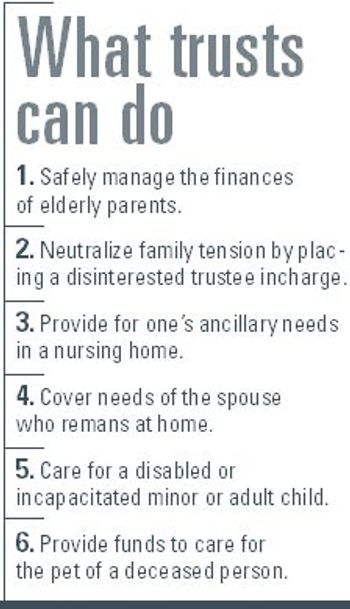
Complaints, lawsuits can cripple veterinary practice owners who don't have a written medical-leave policy
Christopher J. Allen, DVM, JD is president of the Associates in Veterinary Law P.C., which provides legal and consulting services exclusively to veterinarians. He can be reached via e-mail at info@veterinarylaw.com. Dr. Allen serves on dvm360 magazine's Editorial Advisory Board.

Complaints, lawsuits can cripple veterinary practice owners who don't have a written medical-leave policy

Veterinarians-not insurance companies-may be in charge now and in the future when it comes to pet insurance.

Legal liability is a potential problem for all businesses, including veterinarians. And the larger the business, the greater the risk.

Much more is at stake than enforceability; your career is at risk.

One of the more stressful times in a veterinarian's employment relationship is contract-signing or contract-renewal time.

There are new reasons to exercise care during initial examinations.

Finding ways to generate revenue and cut costs can make you indispensable

The moment of a pet's euthanasia nearly always is difficult for the owner and is troubling for the veterinarian.

The prospect of building an all-new practice facility is a daunting one, especially for veterinarians who have not owned a practice before.

One of the most surprising things I learned in law school was the legal definition of "battery." A similar principle applies to the veterinarian who performs an act on an animal without the permission of its owner.

Several factors determine whether they're subcontractors or employees.

I am sure that by now pretty much every veterinary hospital owner is aware that it is important to have an employee handbook or manual for clinic workers.

The debate over limited licensure has many factors.

When I wrote the first half of this article a few months ago, I had no idea how much interest and how many inquiries I would receive on the subject of so-called "policies." Consequently, I thought I would put together the final piece sooner rather than later. I will admit that the subject is a bit complex, and may not be the most enthralling topic in the world. Nonetheless, it is an important one for veterinary practitioners who are concerned about their estates, their surviving relatives and the quality of care they hope to receive as seniors.

Veterinary school and law-school training actually have quite a bit in common. For example, when I finished each, I soon realized just how huge was the volume of practical things I needed to know but did not.

The demands upon us continue to increase with each advance in technological sophistication.

It wouldn't surprise me if a certain percentage of readers who merely scan this month's piece do so because they don't see what relevance the topic could possibly have to the practicing veterinarian. I understand completely because, at first blush, it doesn't seem possible that any "investigations" would need to be carried out in an animal hospital and, even if one did need to be done, how complicated could it be?

I remember the summer days of my youth. My dad's veterinary practice, within walking distance of the local high school, was always fully staffed with local adolescents who just loved to be around animals. True, they didn't know anything about animal restraint or when to use gloves or pretty much anything else, but they were eager and willing and looking for a chance to get some experience with a veterinarian.

They say that most things in life swing like a pendulum from extreme to extreme. We know the business economy follows a boom-and-bust cycle that is mitigated only marginally through government intervention. Also, the political inclinations of society vacillate between conservative and liberal thought and from intolerance to excessive political correctness.

This legal threat, as with so many others, leaves us as veterinary practitioners with a "to-do" list. Actually two "to-do" lists, and they are as follows:

This month I complete a two-part column discussing an expense that many of us put so far on the back burner it's probably on a hot plate in the shed behind your clinic.

It's no secret that most veterinary medical students are cash poor. Still, a handful might have a few extra dollars to spare, perhaps from a tax refund. Christopher J. Allen, DVM, JD, a consultant and president of Associates in Veterinary Law P.C., offers five ways to make smart investments with a small amount of money for future gains.

Sexual harassment in a small-business setting tends to present differently than in a towering office-building in corporate America.

Mind-numbing television programs truly have a therapeutic effect after a long day at work. Listening to Oprah Winfrey or Tom Cruise talk about their latest philanthropic and humanitarian undertakings makes my eyes roll back in my head faster than a pint of Guinness.

I don't want you to go broke. And I want to teach you how to avoid it now and through your eventual retirement.

When the average person thinks about a "trust fund," he envisions Paris Hilton or some filthy-rich kid from college days who wouldn't recognize a hard day's work if it bit him.

When I speak to veterinary students or new graduates, the topic of an eventual practice purchase often comes up.

Several legal and consulting matters passed through our offices recently, dealing with administrative record-keeping failures related to controlled substances.

Every year, my veterinarian clients keep getting younger.

My lovely wife Mary recently threw me a giant 50th birthday party. While the gag gifts were entertaining, the conversations were enlightening.